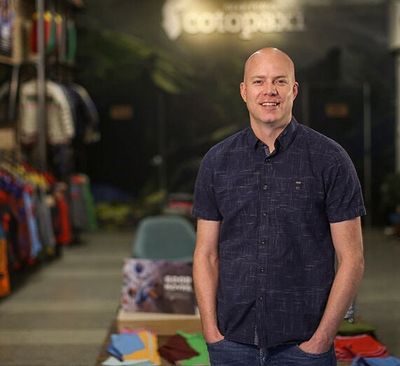Cotopaxi founder Davis Smith, who built a company with a mission to combat poverty, to speak at Gonzaga Thursday

If there’s one passion in Davis Smith’s life, he says it’s people.
The founder and CEO of colorful outdoor apparel brand Cotopaxi will be participating in a forum at Gonzaga University’s campus on Thursday. His talk is part of the university’s Presidential Speaker Series, in which speakers from around the world are recruited to share their work with the community.
“When I was an undergraduate student, I remember being very inspired by a couple of different entrepreneurs that were speaking,” Smith said of his experience at Brigham Young University.
Now, he said he hopes he can be a source of inspiration for this generation of college students.
Smith moved to the Dominican Republic at the age of 4 while his father served as a contractor for the Church of Jesus Christ of Latter-Day Saints and spent most of his childhood moving around Latin America, where he said he was able to witness the effects of poverty.
After returning to the United States and graduating from BYU, Smith felt inspired to explore entrepreneurship.
After two failed business ventures, Smith drew up plans to start Cotopaxi, named after a volcano near his childhood home in Ecuador, with one thing on his mind: people.
He partnered with his former business school classmate, Stephan Jacob, and they approached investors prior to the sale of any products, finding success with Kirsten Green, the Silicon Valley investor behind brands like Warby Parker and Dollar Shave Club.
Smith said Green led the seed round of investments, but he received additional funding from friends, family and other investors. He collected $3 million in seed money for the company’s launch, but it wasn’t just the money that gave Cotopaxi its successful start.
“It was really about knowing who we were and what we stood for,” Smith said. “One problem that a lot of brands have is that they want to break into an industry, but they don’t have a clear reason for existence. It’s not good enough just to make a good product, you have to really stand for something unique and different.”
With a team backing the company, Smith and Jacobs created Questival races and implemented them all in major cities all over the nation to help garner attention for the launch of the brand.
The Questival is a 24-hour race that allows participants to earn free gear by competing in a wide array of challenges such as cooking in a soup kitchen and rock climbing.
According to Smith, by the end of the first round of Questivals, participants had made 30,000 social media posts drawing attention to the brand.
According to Smith, Cotopaxi’s mission of “Gear for Good” has drawn in other consumers, with 1% of all earnings going toward the Cotopaxi Foundation that provides grants to nonprofits helping communities facing extreme poverty. About 5% of Cotopaxi’s earnings are directed towards efforts such as fairtrade sourcing and community-building.
“For people that don’t know business super well, that may not sound like a lot, but for most businesses that’s, like, all of your profit,” Smith said. “For the first five or six years of the business, everything we made went to social impact or more.”
Now, Cotopaxi can be found on retail shelves across the nation in places like REI and Nordstrom.
Miguel Acosta Loza, the president of Gonzaga University’s Student Body Association, spearheaded the invitation for Smith to speak on campus. He said he felt inspired by Smith’s story and values because he grew up in Ecuador.
“I think that this will bring perspective to the GU community, and it is going to bring hope,” Acosta Loza said. “In our classes when we talk about the corporate world and business in general, it is pretty demoralizing to see how businesses are willing to do anything to protect their bottom line, which is profits.
“It is so amazing to see that there are companies out there who are able to do good.”
Smith is scheduled to participate in a public fishbowl-style Q&A forum at Gonzaga University’s John J. Hemmingson Center at 4 p.m. on Thursday.
“I hope that people will be inspired to use their lives to be a force for good in the world,” Smith said.